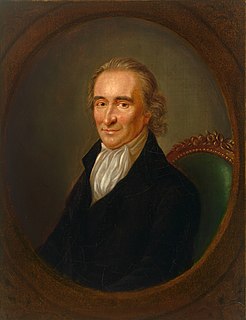
Common law is the body of law derived from judicial decisions of courts and similar tribunals. The defining characteristic of "common law" is that it arises as precedent. In cases where the parties disagree on what the law is, a common law court looks to past precedential decisions of relevant courts, and synthesizes the principles of those past cases as applicable to the current facts. If a similar dispute has been resolved in the past, the court is usually bound to follow the reasoning used in the prior decision. If, however, the court finds that the current dispute is fundamentally distinct from all previous cases, and legislative statutes are either silent or ambiguous on the question, judges have the authority and duty to resolve the issue. The court states an opinion that gives reasons for the decision, and those reasons agglomerate with past decisions as precedent to bind future judges and litigants. Common law, as the body of law made by judges, stands in contrast to and on equal footing with statutes which are adopted through the legislative process, and regulations which are promulgated by the executive branch. Stare decisis, the principle that cases should be decided according to consistent principled rules so that similar facts will yield similar results, lies at the heart of all common law systems.
Common Era (CE) is one of the notation systems for the world's most widely used calendar era. BCE is the era before CE. BCE and CE are alternatives to the Dionysian BC and AD system respectively. The Dionysian era distinguishes eras using AD and BC. Since the two notation systems are numerically equivalent, "2019 CE" corresponds to "AD 2019" and "400 BCE" corresponds to "400 BC". Both notations refer to the Gregorian calendar. The year-numbering system used by the Gregorian calendar is used throughout the world today, and is an international standard for civil calendars.

A language family is a group of languages related through descent from a common ancestral language or parental language, called the proto-language of that family. The term "family" reflects the tree model of language origination in historical linguistics, which makes use of a metaphor comparing languages to people in a biological family tree, or in a subsequent modification, to species in a phylogenetic tree of evolutionary taxonomy. Linguists therefore describe the daughter languages within a language family as being genetically related.

A raven is one of several larger-bodied species of the genus Corvus. These species do not form a single taxonomic group within the genus.

Thomas Paine was an English-born American political activist, philosopher, political theorist, and revolutionary. He authored the two most influential pamphlets at the start of the American Revolution and inspired the patriots in 1776 to declare independence from Great Britain. His ideas reflected Enlightenment-era ideals of transnational human rights. Historian Saul K. Padover described him as "a corsetmaker by trade, a journalist by profession, and a propagandist by inclination". Born in Thetford in the English county of Norfolk, Paine migrated to the British American colonies in 1774 with the help of Benjamin Franklin, arriving just in time to participate in the American Revolution. Virtually every rebel read his powerful pamphlet Common Sense (1776), proportionally the all-time best-selling American title, which crystallized the rebellious demand for independence from Great Britain. His The American Crisis (1776–1783) was a pro-revolutionary pamphlet series. Common Sense was so influential that John Adams said: "Without the pen of the author of Common Sense, the sword of Washington would have been raised in vain". Paine lived in France for most of the 1790s, becoming deeply involved in the French Revolution. He wrote Rights of Man (1791), in part a defense of the French Revolution against its critics. His attacks on Anglo-Irish conservative writer Edmund Burke led to a trial and conviction in absentia in England in 1792 for the crime of seditious libel.

The common cold, also known simply as a cold, is a viral infectious disease of the upper respiratory tract that primarily affects the nose. The throat, sinuses, and larynx may also be affected. Signs and symptoms may appear less than two days after exposure to the virus. These may include coughing, sore throat, runny nose, sneezing, headache, and fever. People usually recover in seven to ten days, but some symptoms may last up to three weeks. Occasionally those with other health problems may develop pneumonia.
Common-law marriage, also known as sui iuris marriage, informal marriage, marriage by habit and repute, or marriage in fact, is a legal framework in a limited number of jurisdictions where a couple is legally considered married, without that couple having formally registered their relation as a civil or religious marriage.

Lonnie Corant Jaman Shuka Rashid Lynn, better known by his stage name Common, is an American rapper, actor, writer, philanthropist, and activist. Common debuted in 1992 with the album Can I Borrow a Dollar? and maintained an underground following into the late 1990s, after which he gained mainstream success through his work with the Soulquarians.

Common Sense is a pamphlet written by Thomas Paine in 1775–1776 advocating independence from Great Britain to people in the Thirteen Colonies. Writing in clear and persuasive prose, Paine marshaled moral and political arguments to encourage common people in the Colonies to fight for egalitarian government. It was published anonymously on January 10, 1776, at the beginning of the American Revolution, and became an immediate sensation.
Bachelor of Laws is an undergraduate law degree in England and most common law jurisdictions—except the United States and Canada— which allows a person to become a lawyer. It historically served this purpose in the U.S. as well, but was phased out in the mid-1960s in favour of the Juris Doctor degree, and Canada followed suit. Bachelor of Laws is also the name of the law degree awarded by universities in Scotland and South Africa.
A condominium, often shortened to condo, in the United States of America and in most Canadian provinces, is a type of living space similar to an apartment but independently sellable and therefore regarded as real estate. The condominium building structure is divided into several units that are each separately owned, surrounded by common areas that are jointly owned. Similar concepts in other English-speaking countries include strata title in Australia, Malaysia, New Zealand, and the Canadian province of British Columbia; commonhold in the United Kingdom; and sectional title in South Africa.

The common raven, also known as the northern raven, is a large all-black passerine bird. Found across the Northern Hemisphere, it is the most widely distributed of all corvids. There are at least eight subspecies with little variation in appearance, although recent research has demonstrated significant genetic differences among populations from various regions. It is one of the two largest corvids, alongside the thick-billed raven, and is possibly the heaviest passerine bird; at maturity, the common raven averages 63 centimetres in length and 1.2 kilograms in mass. Common ravens can live up to 21 years in the wild, a lifespan surpassed among passerines by only a few Australasian species such as the satin bowerbird and probably the lyrebirds. Young birds may travel in flocks but later mate for life, with each mated pair defending a territory.

16:9 (1.77:1 = 42:32) is an aspect ratio with a width of 16 units and height of 9.

Commonwealth is a term used by four of the 50 states of the United States in their full official state names. "Commonwealth" is a traditional English term for a political community founded for the common good. The states, Kentucky, Massachusetts, Pennsylvania, and Virginia, are in the Eastern United States and prior to the formation of the United States in 1776, were British colonial possessions. As such, they share a strong influence of English common law in some of their laws and institutions.

Mercosur, Mercosul, or Ñemby Ñemuha, officially Southern Common Market, is a South American trade bloc established by the Treaty of Asunción in 1991 and Protocol of Ouro Preto in 1994. Its full members are Argentina, Brazil, Paraguay and Uruguay. Venezuela is a full member but has been suspended since December 1, 2016. Associate countries are Bolivia, Chile, Colombia, Ecuador, Guyana, Peru and Suriname. Observer countries are New Zealand and Mexico.

The law of the United States comprises many levels of codified and uncodified forms of law, the supreme of which is the United States Constitution, the foundation of the federal government of the United States. The Constitution sets out the boundaries of federal law, which consists of Acts of Congress, treaties ratified by the Senate, regulations promulgated by the executive branch, and case law originating from the federal judiciary. The United States Code is the official compilation and codification of general and permanent federal statutory law.
African-American names are an integral part of the traditions of the African-American community. While many Black Americans use names that are popular with wider American culture, a number of specific naming trends have emerged within African-American culture. Sources include French names, Arabic names and Muslim names, as well as other European and Biblical names.

"Glory" is a song performed by American rapper Common and American singer John Legend. It was written by John Legend, Common, and Rhymefest. The song was released on December 11, 2014, by Columbia Records as the theme song from the 2014 film Selma, which portrays the 1965 Selma to Montgomery marches. Common also co-starred as Civil Rights Movement leader James Bevel in Selma.
Real estate is "property consisting of land and the buildings on it, along with its natural resources such as crops, minerals or water; immovable property of this nature; an interest vested in this (also) an item of real property, buildings or housing in general. Also: the business of real estate; the profession of buying, selling, or renting land, buildings, or housing." It is a legal term used in jurisdictions whose legal system is derived from English common law, such as India, England, Wales, Northern Ireland, United States, Canada, Pakistan, Australia, and New Zealand.















